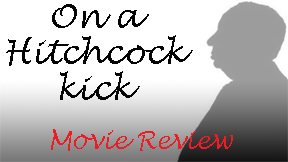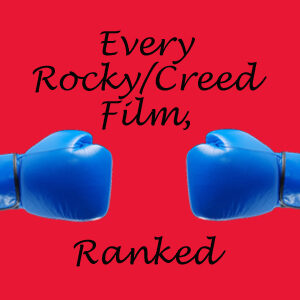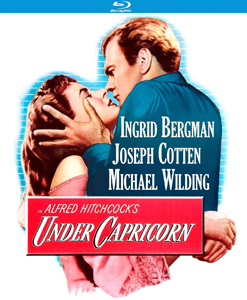Alfred Hitchcock was the Master of Suspense, but one thing he never mastered was a consistent sense of proper pacing and movie length. “Under Capricorn” (1949) has a lot going for it, but it’s 1 hour of material stretched into 2 hours by a handoff team of five writers. That makes it difficult to watch, even when things come together for a suspenseful ending.
Unless you count his two late political thrillers (“Torn Curtain,” “Topaz”) distinctly, “Under Capricorn” is Hitchcock’s last film where suspense is not the main point. Rather, it’s a 19th century costume drama about British colonial Sydney.
Looooong takes
As with his first color film, the previous year’s “Rope,” the vibrancy of the new technique is undercut by another technique Hitch was smitten with, but which actually hurts the film: long takes. So this again feels like a stage play (indeed, it’s adapted from one, which in turn was adapted from a novel). There’s more to the story than the single-apartment-set “Rope,” but less urgency.

“Under Capricorn” (1949)
Director: Alfred Hitchcock
Writers: James Bridie (screenplay); Hume Cronyn (adaptation); John Colton, Margaret Linden (play); Helen Simpson (novel)
Stars: Ingrid Bergman, Joseph Cotten, Michael Wilding
The members of the core love triangle – Joseph Cotten (“Shadow of a Doubt”) and Ingrid Bergman (“Notorious”) as husband and wife Sam and Henrietta Flusky, and Michael Wilding as Charles Adare, who knew Henrietta when they were children in Ireland – do everything they can to legitimize the far-too-slow pace. But good actors can’t save bad writing.
Also in “Under Capricorn’s” favor is slight insight into history. Sam is an emancipist (which I looked up partway through the film): an ex-convict who is free in Australia on the condition of good behavior. Unfortunately less explored is how Sam gained his new riches. My guess is he’s an amazing farmer/rancher, although this is shown even less than in “The Farmer’s Wife,” the only Hitch film that lags worse.
It’s also interesting that Henrietta’s grand cinematic affliction is that she’s an alcoholic. Charles, who is in love with Henrietta but who also genuinely wants to help her, calls her a “drunk” as part of his aim to shock her into better behavior. Granted, alcoholism is treated as shameful in the film rather than glamorous. But it’s refreshing that it’s understood to be a disease (even though the American Medical Association didn’t make this official until 1956) rather than something Henrietta can snap out of by choice.

“Under Capricorn” is also a rare film where drunken stumbling is never played for laughs. Then again, maybe Henrietta’s behavior should’ve had a tinge of humor, because the actual attempts at comedy miss the mark by miles. These involve a pathetic kitchen staff of ex-cons who can’t make a simple breakfast – although head maid Milly (Margaret Leighton, wearing Princess Leia hair buns before they were cool) whips them into shape. (Sadly, literally.)
Not the master of all his domains
So we know the Master of Suspense is not a master of comedy or of pacing. As long as I’m piling on: He’s not too great at period pieces. “Waltzes from Vienna” is not what it could be, but by default it’s his best historical movie. “Jamaica Inn” is exceedingly grim and dull. “Under Capricorn” is a step up in production value, but is nearly as boring.
It’s impressive that Sam has built something from nothing, but we don’t get a sense of the wider story of a successful settlement founded by ex-cons. And yes, “Under Capricorn” is colorful, and features dresses and hats that might’ve had “Star Wars: Episode I — The Phantom Menace’s” designers drooling, but (unlike that later film) it’s not shot in Australia. It was shot in California and Britain. Sam’s mansion appears to be a matte painting combined with interior sets.
The technical qualities mean little when the story slogs so much that I have to force myself to care – even with top-shelf actors. This is not just me bringing modern sensibilities to an old film: Audience and critical reception was so lackluster that the picture went out of circulation for nearly a decade – a long stretch for a Hitchcock film, even in that era.
It was never a lost film, but when Hitch went on his amazing 1950s winning streak, “Under Capricorn” quickly became a dismissed film. Audiences and critics of the time were not wrong.
RFMC’s Alfred Hitchcock series reviews works by the Master of Suspense, plus remakes and source material. Click here to visit our Hitchcock Zone.

